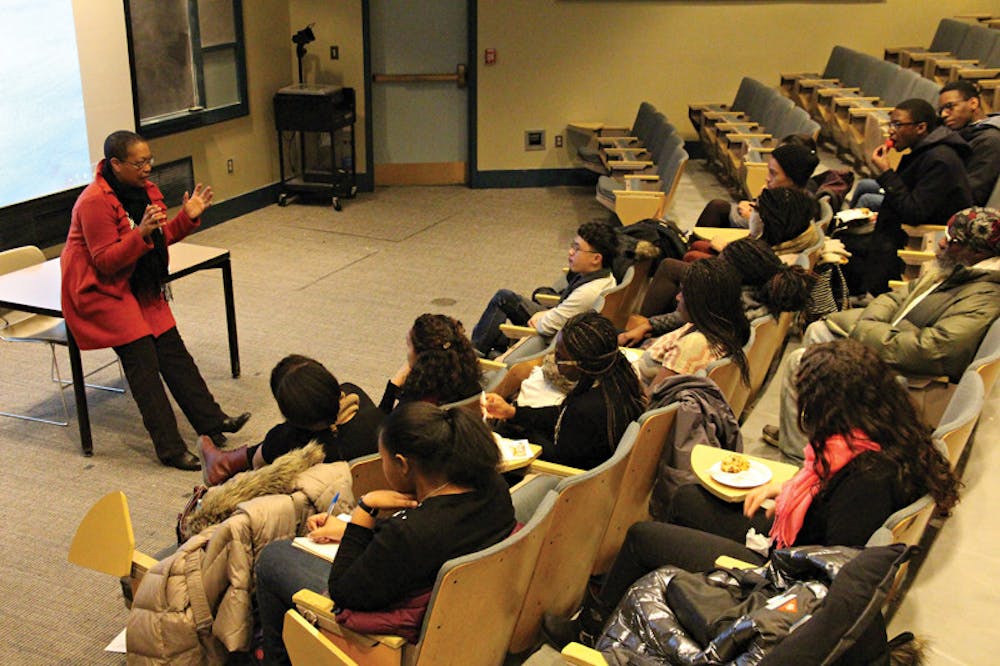“I felt like I had an understanding politically of what it meant . . . to be a queer black woman, but I was grappling with what it meant to me to be black,” said Eliaichi Kimaro, who directed, produced and wrote the award-winning documentary “A Lot Like You.” The film focuses on the parallels between Kimaro — who is half-Tanzanian and half-Korean — and her family in Tanzania, despite the generational and cultural differences between them.
Kimaro did not screen her film but spoke about the varied dimensions of black identity in a lecture sponsored by the Black Heritage Series and the Brown Center for Students of Color Tuesday evening in Salomon 001.
Jacinta Lomba ’17 and Jo’Nella Queen Ellerbe ’15, who helped coordinate the event, “were looking for speakers that could talk about black identity, blackness or identity in general,” Lomba said. “We found a poster promoting Eli Kimaro and her film and thought it sounded really interesting,” she said.
“The content of her film and her life’s work is really important and relevant to the type of conversation we wanted to bring to Brown,” she added.
Kimaro began the lecture by discussing her experience working with a diverse array of sexual assault victims, including refugees, people of color and individuals who identify as gay or lesbian. Kimaro said she is also a survivor of sexual assault.
Kimaro delineated ways in which race, culture and gender can impact identity. She said she believes it is an individual’s duty to find a “creative way to contribute (one’s) own story to human experience.”
Because of the small size of the audience, Kimaro also questioned the students in attendance about their own creative processes and ways in which they would tell the stories of their families. Though students were initially hesitant to speak, encouragement from Kimaro eventually facilitated conversations about students who said they write poetry, listen to music, scrapbook or create websites as means of expression.
Kimaro closed the lecture by showing several clips from “A Lot Like You” and stressing the significance of the film as a repository for unheard voices.
Kimaro’s aunt — who is included in the film — had never shared her personal account of marital abuse prior to her interview with Kimaro. Kimaro, who used her cousin as a translator on her trip, said the language barrier and lack of resources in Tanzania kept her from supporting her aunt as she would have hoped. But ultimately, the safe space that Kimaro created for her aunt to tell her story was enough, Kimaro said, adding that her aunt passed away with a burden lifted from her shoulders.
When an audience member lamented Kimaro’s not screening the film at the event, Kimaro said she may offer a copy to the Brown Center for Students of Color for a screening at a later date and hold a question-and-answer session Skype following that screening.
“I think more than anything, our goal is to encourage Brown students to think more deeply and also to just expand their knowledge and experience intellectually and emotionally,” Lomba said. “That’s what I was hoping that tonight’s lecture would be for a lot of people, and I know for me personally it was.”
“Eli Kimaro did a tremendous job of making me think about what it means to be this person with intersecting identities and my family and the world around me,” she added. “That kind of conversation is always enriching and inspiring, and it is part of the goal of the Heritage Series.”





